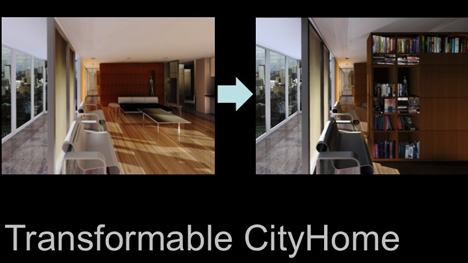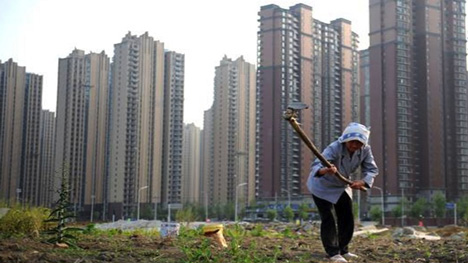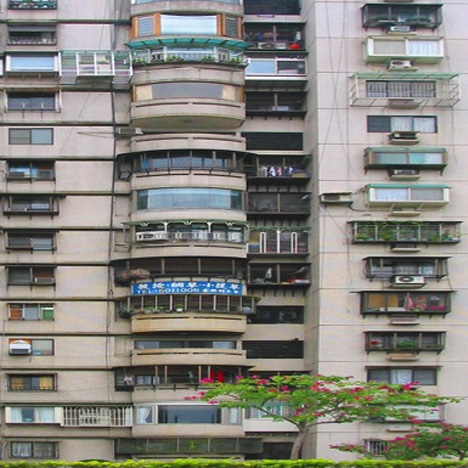
American dream "breaking down" as young reject home ownership
News: flexible high-tech rental apartments with moving "robo-walls" should replace speculative developments as young people increasingly view homes as services rather than possessions, according to Kent Larson, director of the Changing Places Group at MIT Media Lab (+ movie).
“People of the millennial generation are rejecting private cars, private homes, brands, owning a lot of stuff,” Larson said, speaking at the Urban Age Electric City conference in London last week. “They think of all these things as services rather than possessions and I think that will powerfully impact cities of the future.”

Larson said young people don't want the type of micro-apartments being proposed by mayors of major US cities. "Mayor Bloomberg of New York is saying in order for New York City to remain globally competitive, they have to make housing affordable for young people, so the idea is to just build tiny little apartments,” Larson said. “Mayor Thomas M Menino in Boston says the same thing. The problem is young people don't really like these tiny little apartments with a pull-out sofa.”
City chiefs in San Francisco this month voted to allow apartments as small as 20 square metres to help alleviate the housing shortage while New York floated a similar idea this summer. Boston and Vancouver are among other cities exploring the idea.
“The American dream of owning your house and owning your car and freedom and status and all of that, I think that's breaking down,” Larson said.

Instead of micro-apartments, Larson believes the future lies with flexible, high-tech interior spaces that allow residents to customise them over time to suit their changing needs [above]. MIT Media Lab’s Changing Places Group, set up to explore new strategies for living and working spaces, has proposed a system of moving “robo-walls” and foldaway furniture that could fit within a standard loft-type space but provide greater flexibility than today’s apartments.
The CityHome proposal [above] also allows residents to generate their optimum dwelling configuration using software that analyses their lifestyle and living preferences.
“For the city I'm particularly interested in transformable houses; tiny little homes that function as if they were many times larger,” Larson said.
He added: “I don't believe in smart homes, I think that's a totally bogus concept. I think builders only know how to build dumb things, so you want to bring smart things into the home.”

Larson said the construction of vast, generic high-rise apartment blocks [above] to house newly urbanised populations was leading to “dreary, single-purpose residential ghettos that are almost totally dependent on the private automobile.”

Residents in such developments often strive to personalise their homes, he said, showing a photograph of a high-rise development in Taipei where occupants had added balconies, awnings, glazing and other ad-hoc additions. “If you go to Taipei where I took this photograph [above], you see these generic commodity housing projects bursting with this expression of personalisation, you know kind of ad-hoc customisation,” Larson said. “They're illegal and often they are death traps, but it's a powerful sort of visual acknowledgement of that desire.”
He added: “I'm an architect, but it doesn't scale to have an architect work on homes for 300 million rural Chinese who are moving to the city over the next fifteen years. So we're looking at design algorithms where you match a personal profile to a solution profile, you assemble a completely configured apartment and then you give people the tools to go into that space and refine it using these kind of advanced computational tools.”
In future, it will become normal for people to share, rather than buy, the amenities they need, Larson argued. "We're moving towards shared resources in the office, shared desks, shared shops, shared fab-labs, shared electronics labs, shared recreational spaces."
More videos from the Changing Places Group can be seen here. Images are courtesy of Kent Larson.